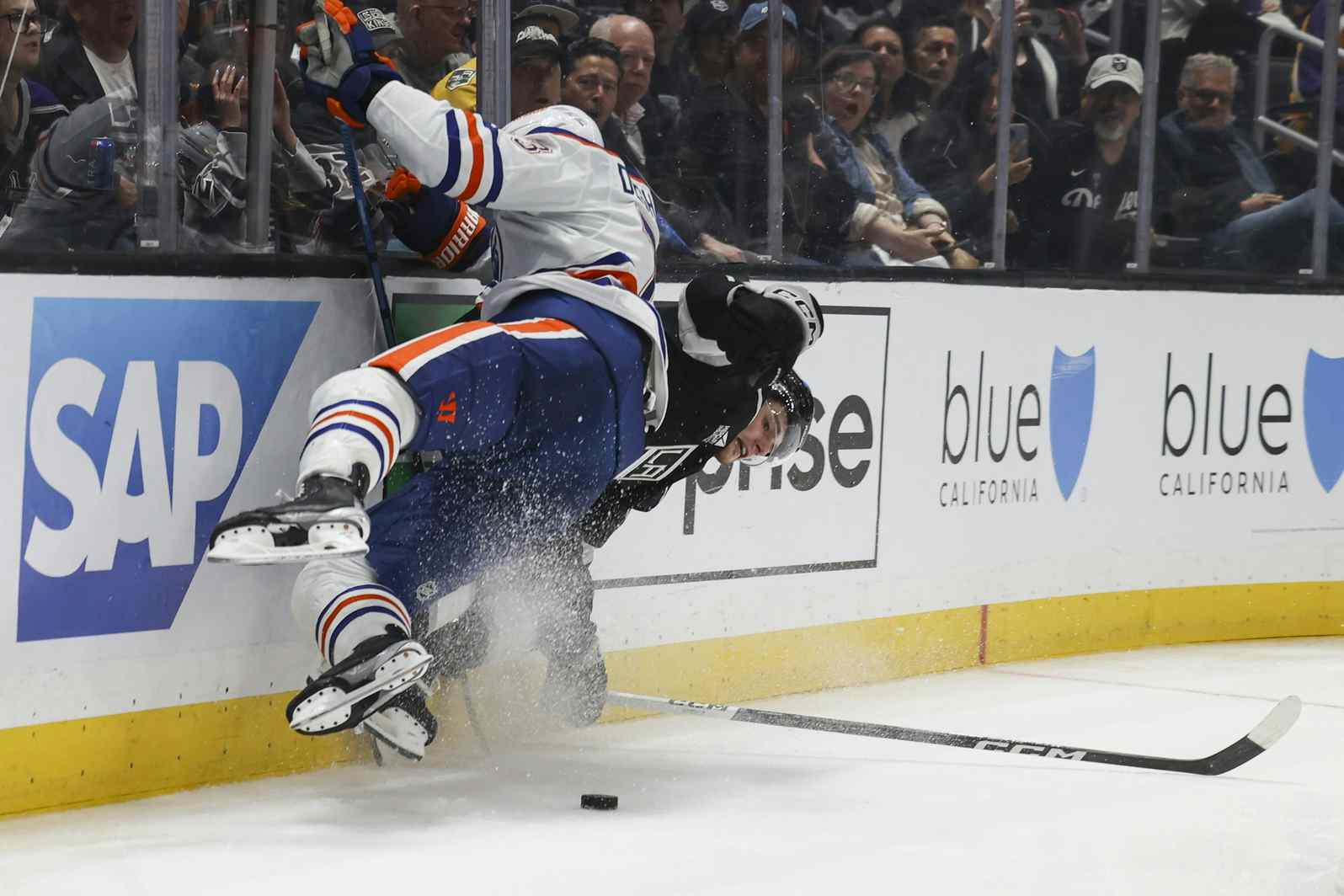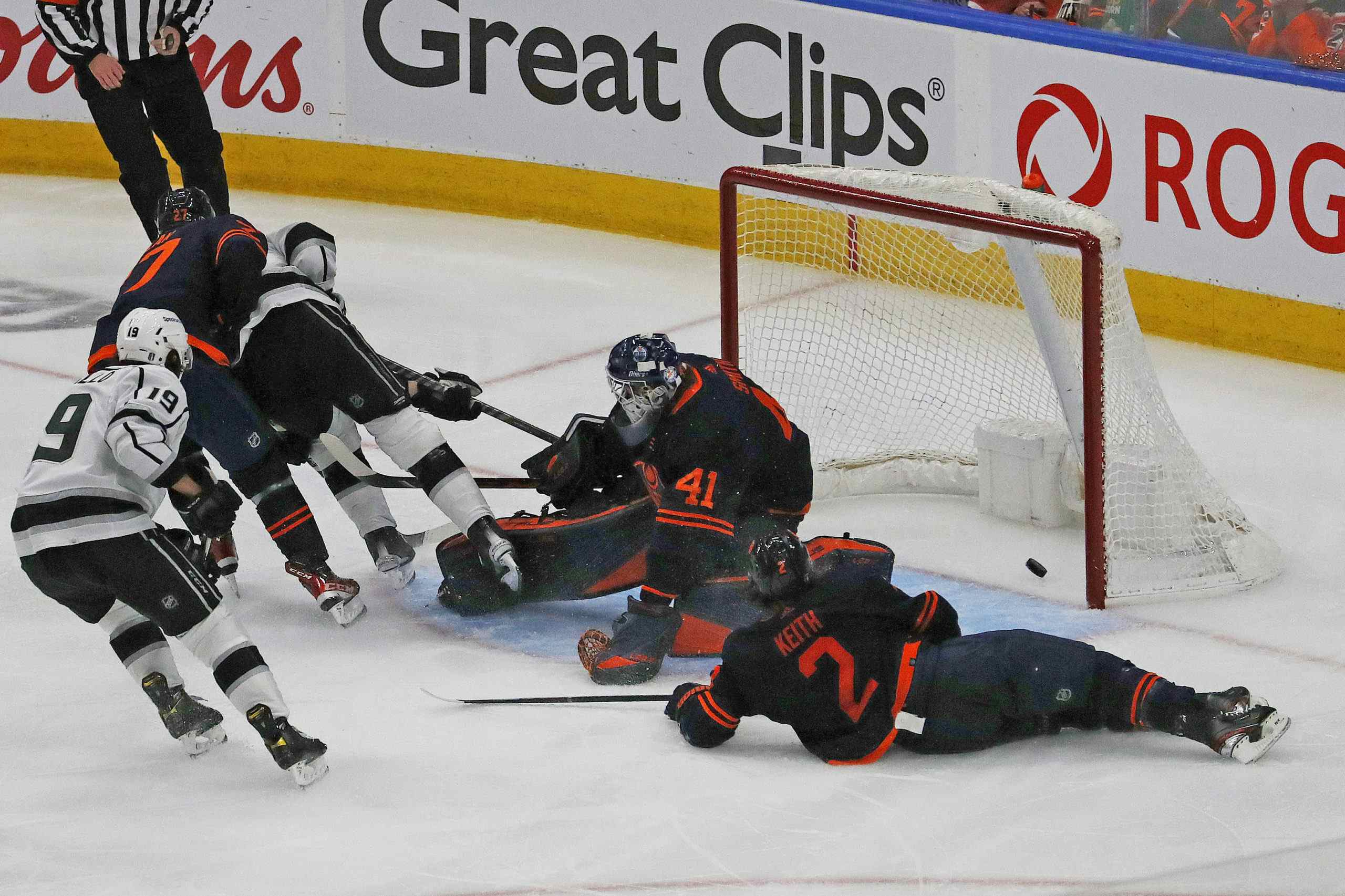Training Wheels

On December 15, coming off a 2-0 loss to the New York Rangers, the Edmonton Oilers made the decision to fire head coach Dallas Eakins. It was an inevitable decision, in a lot of ways; coaches just don’t survive teams that post the kind of record that the Oilers did under Eakins’ watch, regardless of whether that record is the fault of the coach or not.
Todd Nelson was promoted from Oklahoma City to replace Eakins on that same day, but for the past two weeks, he’s done his job with the general manager hovering over his shoulder. That finally seems to have come to an end.
Delegation

In a large organization, it’s impossible for one person to do everything. Many NHL teams used to have one man who was both coach and general manager, but it doesn’t happen anymore because those are both full-time jobs and sticking one man in both roles means neither gets the attention that it really deserves.
So a good general manager has to trust his people.
He has to trust his amateur scouts to come up with a reasonable draft list because he doesn’t have time to drive from rink-to-rink watching players that his team may or may not draft. He has to trust the input of his professional scouts on other NHL players, because while he’s evaluating his own team he doesn’t have time to sink hours and hours into watching the league’s other 30 clubs. He has to trust his people in the minors to bring his team’s drafted prospects along, because he doesn’t have the ability to go down there and do it himself.
A general manager also needs to trust his coach, because in between evaluating his own team and managing the scouts at the amateur level and the scouts at the professional level and the guys down on the farm and taking trade calls he simply doesn’t have the time to pre-scout the opposition and come up with a game plan and fit the individual players on the roster into that game plan.
It’s plausible that the time behind the bench was useful for MacTavish in evaluating his team, but it could never last. Managing a team is a full-time job.
Undercutting the Coach

On Sunday, Todd Nelson addressed his team prior to practice, and explained to the Oilers’ official website why it was important that he do so.
“It’s big,” he said. “It’s important that I’m very clear with them about who I am as a coach and what my philosophy is so there is no second guessing by the team. I think I have to communicate that consistently.”
Nelson is right, of course; a coach needs to be clear and direct with his team, and he can’t have his players wondering what he wants. But by the same measure, isn’t it vital that those players not be wondering which of their coaches is really in charge behind the bench?
“Right now, I’m in control,” Nelson said in that same piece. “If [MacTavish is] on the bench, he’s there to assist me.”
Let’s assume that’s 100 percent true. Let’s believe for the sake of argument that MacTavish was the perfect assistant coach, and that Nelson wasn’t even the tiniest bit intimidated by having his boss – a career coach – in a supposedly junior position behind the bench. Even if that’s exactly what was going on, does a player worry more about what the head coach says and thinks or more about what that coach’s boss, who is standing right there, says and thinks?
Having MacTavish on the bench undercuts Nelson’s authority. It’s impossible that it should be otherwise; he’s the most powerful man in the organization and having him standing over the coach’s shoulder conveys more forcefully than any words possibly could that there is a lack of trust there. That the same coach is stuck with an “interim” tag and was previously passed over for an outsider with no NHL experience only reinforces that idea.
Nelson is a solid coach, and he knew the vast majority of the players before he was promoted into the top job. It was always a little ridiculous to stick him with training wheels; it’s good that he’s finally being given a little bit of space.
RECENTLY BY JONATHAN WILLIS
Recent articles from Jonathan Willis





